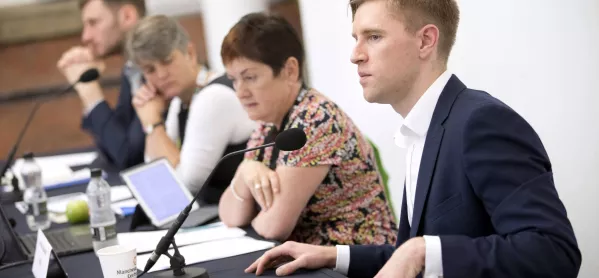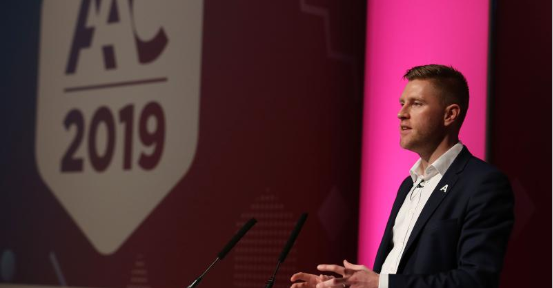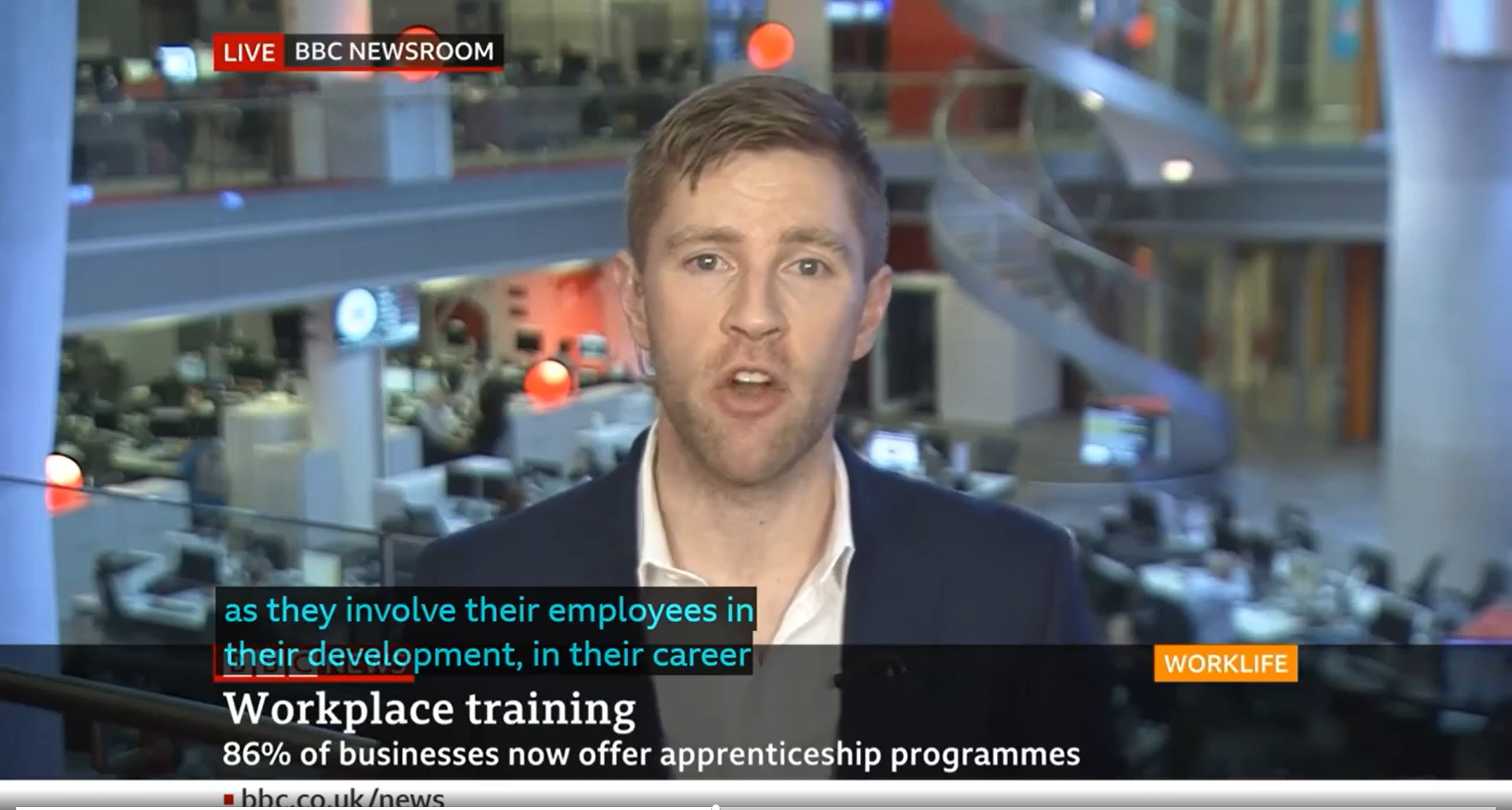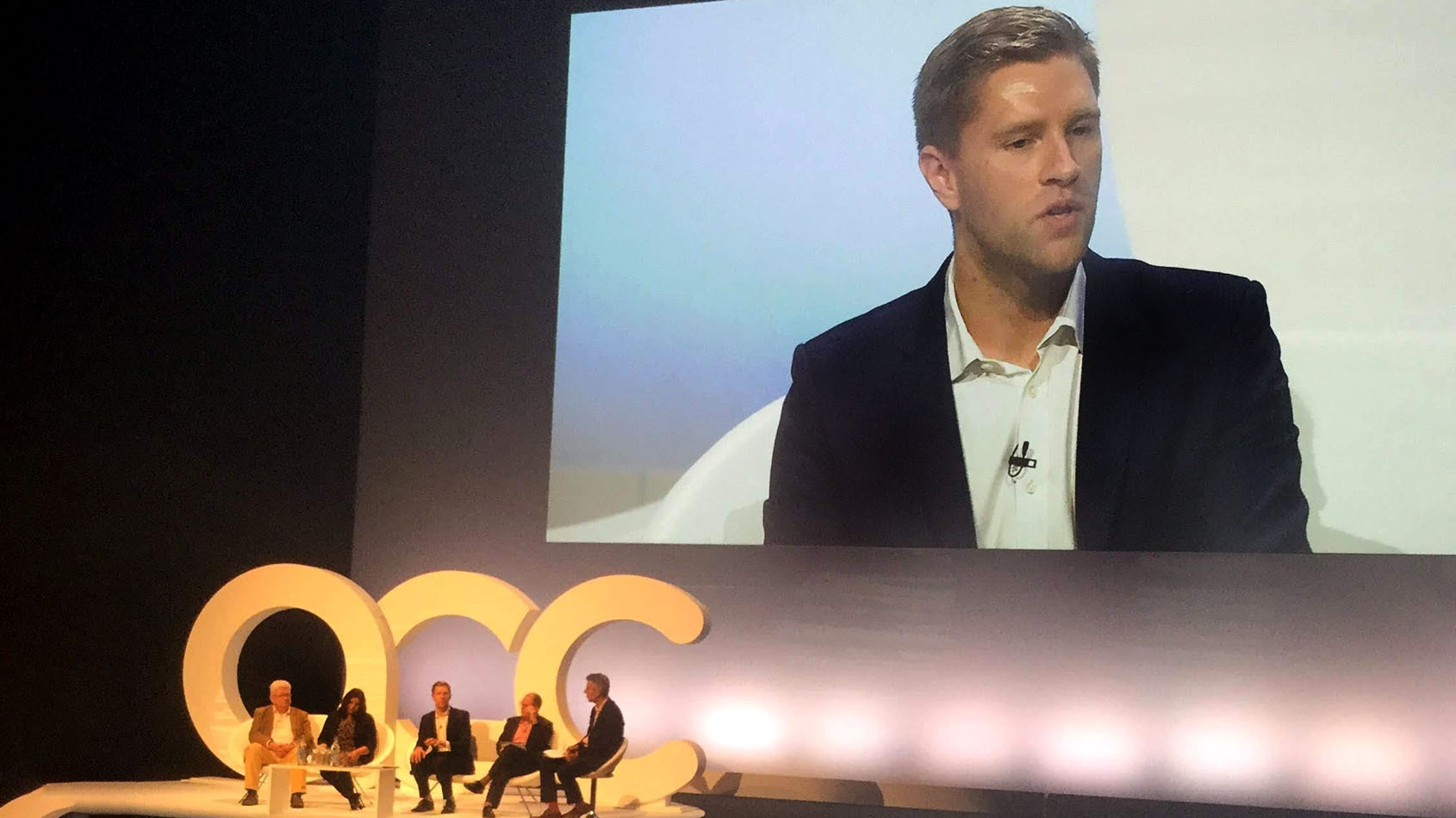
Meet John Cope: the man helping to revolutionise Ucas

John Cope was 19 years old when he was offered his first role in Parliament. He says his decisions leading up to that appointment were made for the wrong reasons - he’d chosen where to go to university based on where some of his family lived, Nottingham, and chosen to study a subject he loved, politics, with no idea of what career path could follow.
When he found himself sitting in an interview for an internship with shadow universities minister David Willetts, he couldn’t believe his luck. “I’d never been to London before - to me it was a holiday destination,” says Cope. “I found myself sitting there in Parliament being interviewed by David Willetts, who was someone I saw on the TV, being like, “What on earth is going on?” None of it made any sense to me.”
In his role today, Cope is at the forefront of the system guiding students facing the same decisions he once did, as director of strategy, policy and public affairs at Ucas.
More: Ucas considering move to post-qualification offers
By John Cope: ‘IfATE needs clout to hold policymakers to account’
Background: ‘Schools and business must work together to close the skills gap’
Cope was born in Doncaster, and moved to Lincolnshire when he was adopted as a toddler. His father came from a long line of Sheffield miners, and had his own business - what he did exactly, Cope laughs, he doesn’t know for sure. His mother gave up work to look after him, and his childhood was a happy one - he talks proudly about his “amazing family”, and says he has no desire to find his biological parents.
At school, he was labelled as far too chatty - “I was very frustrating for teachers” - and says he spent his time constantly questioning, eager to learn and explore new things.
As a teenager, his dream was to become a vet, but when it came to choosing A levels, he realised that all the subjects he would need - further maths, physics, biology, chemistry - were those he was weakest at. He had a choice: either struggle through those subjects or choose ones he really enjoyed.
Going to university with no clear career path
The latter won out, and he went on to study politics, economics, English and geography. But the path to a career wasn’t clear - with no career advice, Cope says he had no idea what his future would look like. His school pushed him to consider higher education - and Cope settled on the University of Nottingham to study politics.
“At that point, I was really interested in current affairs: I watched the news, I enjoyed politics, I went to debating societies. I thought, ‘Well, OK, I’ll do politics,’ and I ended up in Nottingham, because that’s where part of my family lived,” he says.
“Basically, all my decisions about university, subjects and things like that were all done on the wrong basis. It was, like, things I liked, and where my family were.”

Cope says that the six-month internship that followed his interview with Willetts made him who he is today - and that Willetts, and his then chief of staff Nick Hillman, now director at HEPI, taught him “how to function” in politics.
After six months with Willetts, Cope worked for Pauline Latham, who would become Conservative MP for Mid Derbyshire, as her campaign manager in the 2010 general election - “Again that was like, ‘What the hell? I’ve never fought an election, I don’t understand politics and here I am supposed to be managing a campaign.’” He then became Latham’s office manager when she won. A degree apprenticeship-style education followed - Cope worked for Latham three days a week, and returned to university on the other days, and graduated within a year.
After two and a half years, Cope moved across to work for Nicky Morgan, whom he describes as “wonderful”. In his time working for Morgan as a parliamentary adviser, she was promoted to education secretary and her joint remit of education and equalities minister meant that Cope had his “dream job”. He says one of his proudest moments from that time was the introduction of the anti-LGBT bullying fund.
“LGBT bullying is not going away, and I know from my personal experience. At school, it was awful. I always look back on it and kind of laugh about the fact that my school had 700 students, and not a single one was out as LGBT,” he says.
“If the national statistics are accurate, there must have been at least 40 or so. I look back and think how ludicrous it was that we were all so scared, all worried about what would happen, all suffering in silence, a couple of metres away from someone else.”
The fund hit the headlines in recent weeks, when the government pulled its financial support. Cope says it is frustrating that the government has not set out its plans for the fund’s future.
While working for Morgan, Cope, who describes himself as “a glutton for punishment,” worked weekends in the Conservative Party press office. In the run-up to the general election in 2015, he went full-time in the communications team and was in charge of broadcast media. The hours were strenuous - he was working 6am to 6pm, seven days a week. He says it was one of the most amazing experiences, but one that left him exhausted.

At that point, Cope decided it was time to leave the Westminster bubble and went on to be head of policy at Visit England. After a short stint - Cope thought the job would be a break from the relentless work of government, and it turned out to be anything but - he left to set up the Education Policy Institute with David Laws and Natalie Perera.
Life outside of the Westminster bubble
The think tank was born at a Chinese restaurant, he says - and it was a massive leap of faith. The idea was that it would be an Institute for Fiscal Studies for education: an independent, neutral organisation that looked at data research in education. Looking back now, Cope says that he is immensely proud of what EPI has achieved, and he still remains an advisory board member.
After two years full-time at the EPI, a couple of years at the CBI as the head of education and skills policy, and a stint working at Public First as a deputy director, followed. It was his work at the latter that led him into his current role at Ucas: Cope was commissioned to research the role of Ucas and how it could be developed in the future. After finishing that work, Ucas offered him a role as director of strategy, policy and public affairs.
“Ucas is going through a transformation, and had been going through a transformation before me: I’m just one part of it. If Ucas was honest with itself, its processes and systems are still set up to help A-level students go on to the undergraduate three-year degree,” he says.
“That’s the reality, and that’s wrong. That’s behind the times, it’s about 10 years out of date. This transformation has been a long time coming.”
Some of the changes are things that may be boring to an outsider, but are absolutely critical, says Cope. For example, Ucas previously had always been chaired by a university vice-chancellor - until now. Trudy Norris-Grey, a senior executive of Microsoft and the chair of the CBI’s digital innovation council, is due to take up the post this year. There is also a review underway about every single touch point Ucas has with young people and adults, and how they can be changed.

The big area for review, Cope says, is obvious: apprenticeships.
Ucas focusing on apprenticeships
“The demand for apprenticeships is there. We have this thing called our pre-applicant database, which is all the people that are applying to go in 2021. We ask them questions like: would you like information on apprenticeships? Forty-seven per cent of them said yes. And yet 47 per cent will not end up on an apprenticeship,” Cope says.
“There’s a huge amount of work for us to do: does our website do that justice? Does the application process? Do our events? I was looking at some of our physical events, and there’s a thing called ‘The Apprenticeship Zone’ - and we don’t have a ‘University Zone’, so why are we putting apprenticeships in a corner?”
Cope is keen to join up the different parts of the education system - and sees his newest role, as a board member at the Institute for Apprenticeships and Technical Education (IfATE) as key to doing that.
“Higher education, further education and apprenticeships, they are all run on different databases, using different classification. It is really, really difficult to get parity. We will do everything in our power at Ucas to create parity, and create a level playing field,” he says.
“But there is some stuff that we just can’t do, even if we motivate students, even if we create the processes, we can’t actually make the education system talk as well as we could. It’s about working with the government to think about how we get to a point where, when an apprentice fills out their Ucas statement and their form, they can use that to apply to lots of different options, not just university.”
However, Cope warns of a “big social justice problem coming down the tracks” in apprenticeships. He says that if all the hard work on apprenticeships pays off, and they do become prestigious and aspirational, there will be issues with widening participation and access - issues that, when it comes to undergraduate courses, the system has been dealing with for decades.
Cope says the key to tackling this is a shared admissions application service that oversees the entire apprenticeship system.
“There is no one who’s overseeing how you get an apprenticeship. And so much of it is individual employers advertising, and it means that as a young person, you have to deal with a myriad of processes. You have to personally get an interest, and find an employer, or a college,” he says.
“You end up with this kind of really fragmented system, so much of it comes down to luck. My strong view is that Ucas needs to do all of the behind-the-scenes work to address the unfairness that is already building. If we don’t, in five years’ time, we will be sitting around asking, ‘What do we do about widening participation?’”
Making a difference for students
There’s no doubt about it: Cope is a busy man. The number of current roles he holds is enough to make anyone’s head spin: a full-time job at Ucas, a board member of IfATE, a governor at Activate Learning, a trustee for Achievement for All, and of course, an advisory board member of the EPI.
Is he simply a glutton for punishment, as he has previously described himself, or does he have a secret time machine the rest of us don’t know about? It turns out, the answer is neither. “If you want something doing you ask a busy person. When you acknowledge that you’re busy and you’ve got loads of competing responsibilities, you have to become absolutely ruthless about your time, about what’s important and what isn’t,” he says.
“I have to kind of really flex my style: there is no room for nice chats and there’s no room for kind of micro-managing. You just have to really prioritise. In all of those roles, the golden thread is the student. That’s what drives me and why I do it all. When I have those low moments reading a board paper at 9 or 10 o’clock at night, it helps to know I’m making a difference. It sounds so cliche, but that’s what keeps me going in those dark times.”
You need a Tes subscription to read this article
Subscribe now to read this article and get other subscriber-only content:
- Unlimited access to all Tes magazine content
- Exclusive subscriber-only stories
- Award-winning email newsletters
- Unlimited access to all Tes magazine content
- Exclusive subscriber-only stories
- Award-winning email newsletters
You need a subscription to read this article
Subscribe now to read this article and get other subscriber-only content, including:
- Unlimited access to all Tes magazine content
- Exclusive subscriber-only stories
- Award-winning email newsletters
- Unlimited access to all Tes magazine content
- Exclusive subscriber-only stories
- Award-winning email newsletters
topics in this article



